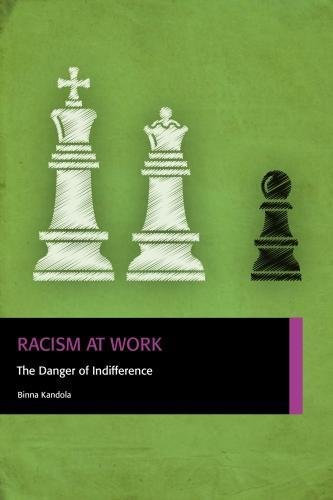It’s 2018 people, so why are we not shocked at the news that a shocking 60 per cent of black and 42 per cent of Asian people have experienced racism at work, as opposed to just 14 per cent of white people?
Films like Marvel Studios Black Panther and affirmative hashtags like #BlackGirlMagic certainly go a long way to instil pride and help us celebrate who we are in our own spaces, but at work, it’s often a different story.

The stats compiled by Pearn Kandola, a business psychology firm, are part of new research used in Professor Binna Kandola OBE new book, Racism at Work: The Danger of Indifference, which addresses the evolution of racial bias in the workplace over the last 60 years.
Further results show that one in five (20 per cent) of those questioned have received verbal or physical abuse, while nearly a third (29 per cent) feel that they have been intentionally excluded from work or social events because of their race. A further fifth (19 per cent) believe that they have been falsely accused or criticised by their colleagues, and as many as 59 per cent also feel that colleagues have made assumptions about their ability, character or behaviour, based on their ethnicity.
Professor Kandola OBE, who is a senior partner at Pearn Kandola, commented: “These results clearly show that racism is still rife throughout the workplace, for black and Asian people in particular. The fact that examples of ‘subtle racism’, such as making assumptions about someone based on race, are the most commonly experienced form, indicates there is still a lack of awareness around these types of actions and the response they illicit. It’s important that we recognise the serious impact of any act of racism, regardless of how overt.”
Of the different forms of discrimination that respondents have experienced, black people are most likely to feel that colleagues treat them differently because of their race (45 per cent). Asian and white people, meanwhile, are most likely to feel that colleagues have made assumptions about their ability or behaviour based on their race (53 and seven per cent respectively).
Professor Kandola concluded: “To think that a significant number of people have experienced physical or verbal abuse at work, a supposed place of safety, is simply unacceptable. We need to work harder to not only tackle instances of racism where we encounter it, but also to raise awareness of the more ‘subtle’ forms of racism that are becoming a daily norm. Abuse and exclusion on racial grounds can do serious harm but promoting stereotypes can do just as much to foster the ongoing culture of racism.”
Racism at Work: The Danger of Indifference will be published on 6 March 2018.
Buy the book here.












